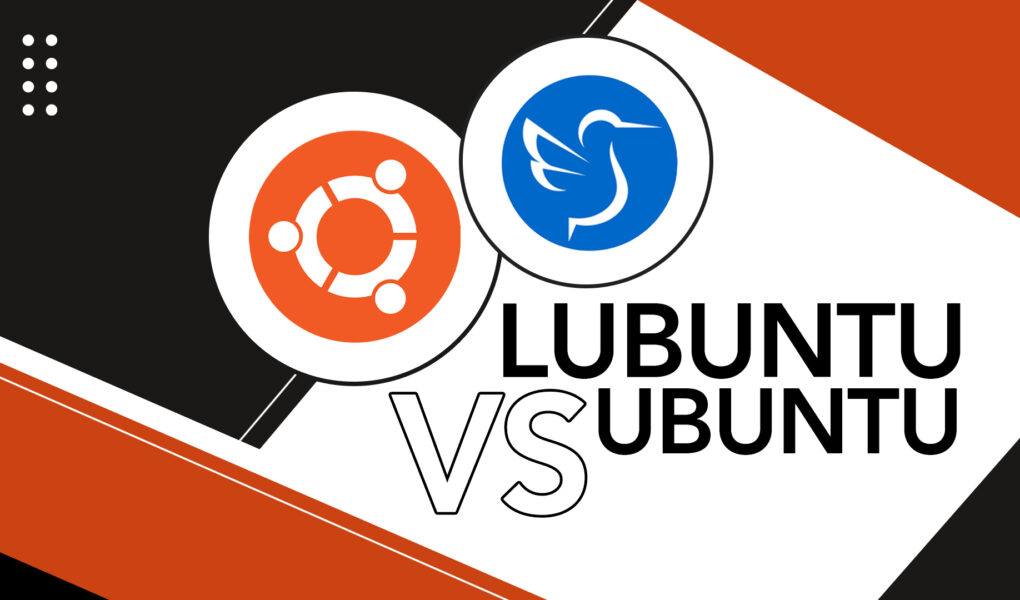Lubuntu and Ubuntu stand out as popular choices due to their user-friendly design and robust functionality. Both are offshoots of the same base – Ubuntu, yet they cater to different user needs and preferences. Understanding the differences between these two distributions is crucial for users as it not only affects system performance but also impacts user experience, hardware requirements, and software compatibility.
Therefore, this article will break down the key differences between Lubuntu and Ubuntu, aiming to provide a comprehensive comparison that could guide potential users to make the right choice. Let’s break it all down.
What is Lubuntu?
Lubuntu is a lightweight variant of the popular Ubuntu Linux distribution. It’s designed to work efficiently on older hardware or systems with limited resources, thanks to its use of the LXDE/LXQT desktop environment.
Lubuntu is characterized by its simplicity and lightness. It comes with essential applications like word processors, web browsers, and email clients, and it’s highly customizable. What’s more, it’s resource-efficient, meaning it can breathe new life into your old PC.
What is Ubuntu?
On the contrary, Ubuntu stands as one of the most widely used Linux distributions. It’s praised for its user-friendly interface, robust performance, and extensive software libraries.
Ubuntu is derived from the Debian Linux distribution and employs the GNOME desktop environment as its default interface. It’s known for its stability, regular updates, and extensive support from its community. Moreover, it boasts a wealth of software applications, making it suitable for a broad range of users, from beginners to professionals.
Detailed Comparison: Lubuntu vs Ubuntu
1: User Interface
Ubuntu utilizes the GNOME desktop environment, known for its modern, sleek, and intuitive interface. The dash-to-dock feature allows easy access to your favorite apps and workspace switcher. It offers extensive customization options, empowering users to modify the appearance and user experience to align with their personal preferences.
On the other hand, Lubuntu uses the LXDE/LXQT desktop environment, which opts for a more classic, Windows-like appearance. It’s significantly less resource-intensive, making it a great choice for users who prefer functionality and efficiency over aesthetics.
2: Performance
Regarding performance, Lubuntu’s lighter desktop environment means it generally runs faster on hardware with limited resources. It’s designed to work smoothly even on older machines, making it an excellent choice for users looking to repurpose old hardware. On the other hand, Ubuntu, with its more resource-demanding GNOME desktop, tends to offer better performance on newer, more powerful machines. It provides a highly responsive, smooth user experience when the hardware capabilities allow.
3: Security
Ubuntu and Lubuntu both have strong security due to their Linux base, benefiting from features like a robust firewall and mandatory access controls. Ubuntu does, however, have an edge with its more frequent updates and larger community base, which means security patches are developed and deployed more quickly.
4: Hardware Compatibility
While both distributions should work well with most hardware, Ubuntu tends to have better hardware compatibility, especially for newer hardware. This is largely due to its larger community and greater corporate backing, which means drivers for new hardware are more likely to be developed and made available quickly. Lubuntu, while slightly less likely to support the very latest hardware, still has excellent compatibility, especially for older hardware.
5: Software Availability
Both Ubuntu and Lubuntu use the same package management system (APT) and have access to the vast Ubuntu software repositories, meaning most Linux software can run on both. However, Ubuntu’s larger user base and popularity among developers often mean it gets new software, updates, and patches more quickly. Lubuntu, while it can run the same applications, might not always have the latest versions as quickly due to its smaller user base.
6: Community Support
Ubuntu, being one of the most popular Linux distributions, benefits from a vast, active community. This means more frequent updates, a larger number of tutorials, and a broader base of user-generated content. Lubuntu, while it has a smaller community, still benefits from being a part of the wider Ubuntu community, meaning users often can find support and solutions for most problems they encounter.
Conclusion
Both Lubuntu and Ubuntu are powerful and versatile Linux distributions, each with its strengths. Lubuntu, with its lightweight LXDE/LXQT desktop environment, is designed to be resource-efficient and works exceptionally well on older or less powerful hardware. It’s an excellent choice if you have an older PC or if you prioritize speed and efficiency over visual design.
Ubuntu offers a more modern, sleek user interface with its GNOME desktop environment. It also tends to have better compatibility with newer hardware and a larger community for support. Ubuntu’s rich software availability and frequent updates make it a solid choice for users who want a smooth, responsive, and visually pleasing experience on capable hardware.



